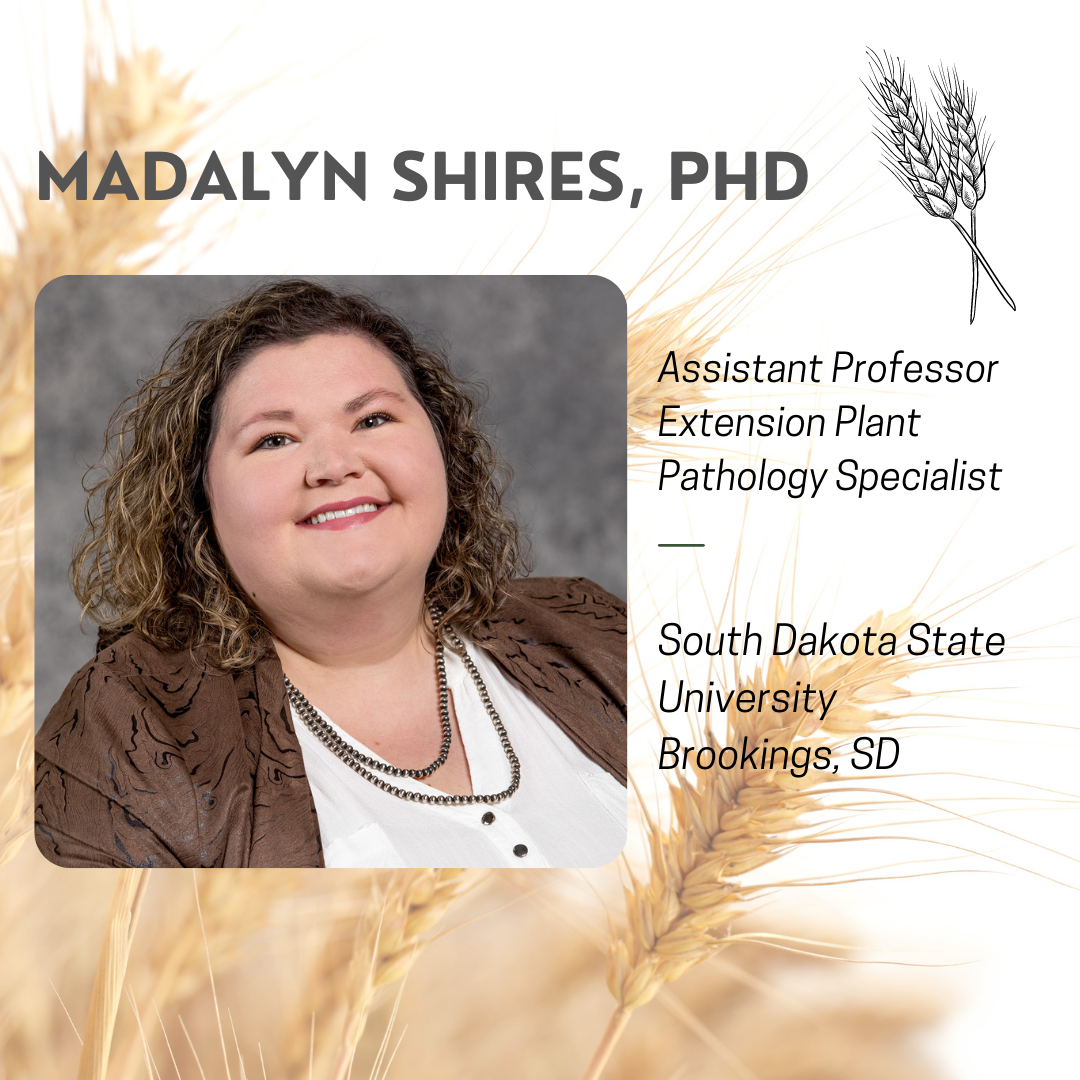Featured Researcher Bio - Madalyn Shires 2023

Meet Madalyn Shires, PhD, assistant professor and extension plant pathology specialist at South Dakota State University (SDSU). Shires is recently new to the USWBSI, starting as a PI seven months ago when she began her new position at SDSU.
Starting and Continuing in the Great Plains
Shires is originally from southeastern Oklahoma. She attended Oklahoma State University and graduated with her bachelor’s degree in plant and soil sciences. Her inspiration to work in the field of plant pathology can be attributed to The Plant Disease and Insect Diagnostic Lab at Oklahoma State University and Jen Olson, the current plant disease diagnostician and lab director. In addition, Shires credits Jessica Lindenmayer, a master’s degree student working on switchgrass rust, as another person who got her interested in the field of plant pathology.
After graduating from Oklahoma State University, Shires attended Texas A&M University for her doctorate degree in plant pathology and microbiology where she studied rose rosette disease. Upon completing her PhD, Shires began a post-doctoral researcher position at Washington State University studying little cherry disease. Shires brings her experience in genotyping, epidemiology, and assay development and optimization for plant disease detection to SDSU’s Department of Agronomy, Horticulture, and Plant Science.
Participating in the Integrated Management Coordinated Project
Shires is one of 19 PIs participating in the USWBSI’s Integrated Management Coordinated Project (IM-CP). In this project, she and her team evaluate fungicide efficacy for Fusarium head blight (scab) of hard red winter and spring wheat in South Dakota. The overall goal is to generate information that can aid South Dakota growers on effective and profitable FHB management decisions. “So far, I’ve liked how collaborative the group is,” says Shires.
Broadening Your Knowledge Base
Being an early career professional herself, Shires advises graduate students to not pass up opportunities that allow them to learn more about topics outside their focus of study. “It is good to be diverse in your knowledge base about plant pathology and to keep a big picture view about the impacts your research can have,” says Shires.
If you are interested in learning more about Dr. Madalyn Shires research, visit her faculty webpage.
You can also check out the series of previous USWBSI Featured Researchers.
